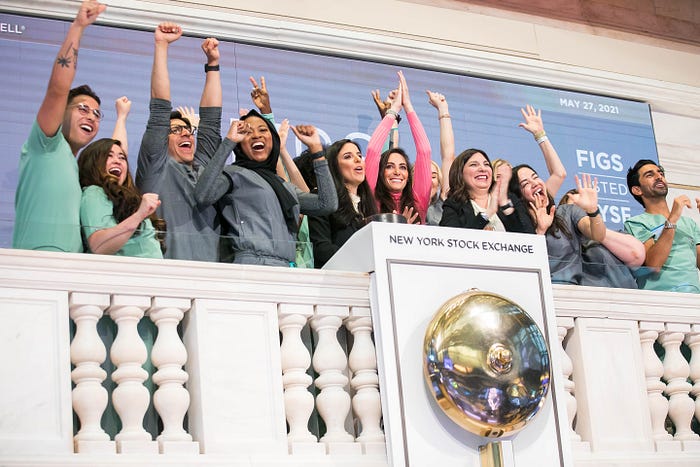How we educate is being rewritten as we know it

For the past 80+ years the notion to ‘go to school to get a better job’ is an utter lack of education on how to build up a generation who’s maximizing their talents for impact on community and for their opportunity for personal wealth. Perhaps this is why higher education and even middle schools are RUSHING to provide entrepreneurial education.
It starts with investing
I believe this systematic educational DNA deficiently has been driven by a lack of access to invest in startups and small businesses.
What’s the 1st step a founder takes when starting their business?
- They put a little money on the line. It may be small. It may be big, but they have skin in the game.
- They learn when thing don’t work and pivot and double down when things are working well because cash is the lifeblood of the company.
So why do we expect ANYONE to be able to be better entrepreneurs and founders if they don’t know how to invest?
My wife and I have really learned about what makes culture and communities tick since 2016 simply by investing similar amounts across 80+ companies in founders we believe in.
This isn’t like ‘trading’ in the stock market where you buy & sell at a whim based on the ‘analysis’ of the financial advisors.
This is ‘investing’ in the long term grow of exciting, fun, and boring companies who are shaping the future. Financial returns come from ‘exits’ e.g. being listed on the stock market, selling to another private company, paying investors off cash flows. However, the education on how new technologies and other innovations are being built is what is most interesting to me.

The last exit was for a startup who sold to Logitech. They created a camera which streamed wirelessly on multiple social platforms with 1 click vs. having to leverage 3 to 4 different programs and hardware.
The other — a new medical provider concept where I learned how medical provider coverage could be changed to reach more people. They sold to a public Canadian company.

We have tons of revenue shares with cool main street businesses like Ghostface Brewing which has nearly double their payout since it started just over a year ago — yes the crowd is a powerhouse at driving sales momentum.

Several others on paths to IPO (aka ‘exit’ to the stock market). Sorry, except for Knightscope (security robots) and NYCE’s Temple-I (college student living space), I can’t disclose who those are at this time, but in general, any company that is scaling rapidly fits the potential to IPO.
I learned a ton about how commercial real estate works within NYCE’s TRIBE community.

…and I’m learning the science behind how immunotherapy treatments are being created to help cure cancer so others don’t have to suffer from this disease.
The world of how we educate is rapidly evolving
Investment Crowdfunding is a trigger for new investors to potentially start new companies of their own they otherwise may not have started.
This leads to an increase of innovation and maximization of individual potential. Is there risk in trying something new and putting money on the line to do it. Hell yes, but that’s the way we progress as individuals and a society to train up the next generation.
We can either be relegated to what the company dictates OR we create the company. In either case, the risk is on those who put the money in for the potential of what could be.
Founders & their teams go deep into how things are made. They respond to investor questions. They welcome intros that can drive their innovation and companies forward.
The world of investing in early stage companies is more like choosing what one is willing to pay for a 1 to 7 year degree around material that rapidly evolves as innovation evolves with the ‘graduation’ having a potential financial return — in which active involvement only increases potential outcomes.
I can pay ~$15–50K/yr to go to a university for a single degree or invest that same amount across 30 to 50 companies to get multiple ‘degrees’ …. with a potential for return.
Elizabeth and I are not experts. We just love what founders are building.

Hell, it’s a risky world and one we knew nothing of until 2016. 2 companies we’ve invested in have failed so far. I’m sure others will too. It’s expected. We got involved because we found it fascinating that we be involved in this world by putting a little money in and then responding to founder asks to open doors for them, connect them with people we knew, go have a beer at their location and bring a friend, etc.. It’s been far more meaningful to us to invest locally and in moonshot ideas across the country because we want to be invested in the innovators creating that world for our children.
Do you know how many founders my son (9 at the time of this writing) has been able to learn from that HE’D NEVER HAVE ACCESS TO IN SCHOOL?
What’s that type of education worth as a parent for your child?
I don’t have a choice on taxes, but at least I can have some opportunity for upside if I put some discretionary or IRA money into local startups, small businesses, and real estate with 100’s or 1000’s of others who all want to work together to make those startups successful.
The system created in the 1930’s to protect people from losing money has created a system where we put wealth into a few select hands (those with knowledge and access) and created diminishing chances to drive innovation.
It doesn’t have to be that way.
Innovation has a dark side — it causes displacement
We have to fix that.
The innovators may create the opportunities that drive up prices, but it’s those who have access to benefit from any Return on Investment that shape communities (because the select few choose what to fund next and at what expected return it will create).
It’s about those who have access to participate in ownership.
- Those who have access to invest in commercial real estate development where leases are paid from retailers, manufacturing, life sciences, and other businesses. Who has access? Typically to some group who gave access to those who could write a minimum check of $50K to $1M.
- Those who have access to invest in the local business community such as main street, franchises, car wash stops, and more.
- Those who are allowed to participate in new innovative startups who might initially be valued at $5M and then shoot up to $50M, $100M, or even become $1B+ (aka “unicorns”)
…and more importantly, individuals having the knowledge of how to help these companies grow even if they are just an investor and not an employee or partner in the company.
If my neighbors are purely relying on the salaries, bonuses, and investments in the public stock market, they’ll do alright, but they will eventually face diminishing returns for time they put in because growth in the cost of living will outpace those gains, just like it has in places like California, New York, is more recently happening in Austin, TX. History does repeat itself.
More importantly, I think they will miss out on of the best educational paths for themselves to really inform what they are called to do in life.
I have met countless entrepreneurs who never would have found their calling and purpose had they not been given access to invest due to the law changes in 2016. Many of these opportunities are open for as little as $100. Heck, an aerospace company, Orbital Assembly, had an offering open for $1 minimums last year. That’s really cool — owning a piece of a space company, learning about to help them grow, and being a part of creating the future.
Please let me be super clear. I am not saying people should invest. I am saying that I’ve found putting some skin in the game has taught me more about industries I never would have known and enabled me to start & grow Incolo within a community of founders who are now growing from the collective knowledge and founder to founder connections.
If we can build this robust education into the DNA of individuals, we’ll have more innovation, the impact we want to see in society, and people living more fulfilling lives where taking a risk is more than jumping from one job to another because of the compensation package or having a ‘comfortable life.’
This new Educational DNA is about creating a culture of risk takers who move dynamically between the best role for them to solve really big problems they are passionate about.
